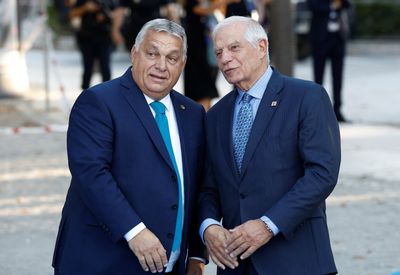EU foreign policy chief Josep Borrell announced on Monday that Hungary, which holds the presidency of the Council of the European Union, has lost the right to host the next meeting of foreign and defense ministers over its stance on the war in Ukraine.
The controversy: Hungary’s Prime Minister Viktor Orban visited Vladimir Putin in Moscow earlier this month and accused the EU of having a "pro-war policy,” spurring an uproar in Brussels.
Hungary is also upset about Ukraine’s decision last month to adopt sanctions blocking the transit of oil to Central Europe by Lukoil, sparking fears of supply shortages in Budapest. Hungary relies on Moscow for 70% of its oil imports — and on Lukoil, Russia’s largest private oil firm, for half that amount.
Budapest responded to Borrell by announcing that it would not refund EU members any of the6.5 billion euros they expected for transferring arms to Ukraine unless Kyiv allows oil shipments from Lukoil to resume to Central Europe.
Why it matters: Since Russia's invasion, member states that gave weapons to Ukraine have been able to ask for compensation for transferring munitions, giving Hungary monetary leverage to get the oil it wants. Hungary and Slovakia asked the European Commission on Monday to mediate with Ukraine, and the issue would go to court unless the EU executive body acts within three days.
